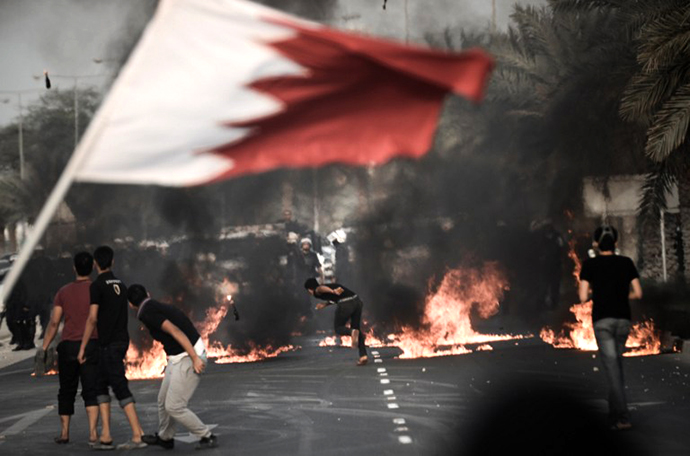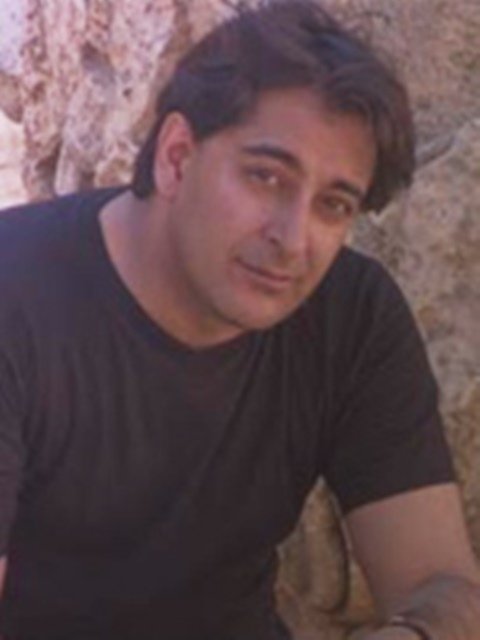‘US-British foreign policy is never about human rights, Bahrain no exception’
British and US interest in the world, and particularly in the Middle East, is mainly over the control of resources, which is why it is impossible to imagine them supporting the Bahrain opposition, journalist Afshin Rattansi told RT.
The London-based writer expects the Formula One weekend in the
kingdom to be very hot.
RT:We've been here before: the anti-Formula 1 clashes in 2011, which killed dozens of people, and finally the cancellation of the race. Why would Bahrain want to again draw the eyes of the world at a time when it's in such social turmoil?
Afshin Rattansi: I guess the easiest way would be to say that the family, the dictators that rule the authoritarian dictatorship, are just stupid. But actually it shows how confident they are of the help of President Obama to support the human rights abuse. Britain’s Scotland Yard Deputy Commissioner is down there presumably handling anti-terror so-called devices, actually crowd control devices, tear gas and so forth. But having said that, they don’t seem confident, because in the past few hours they’ve detained a British TV crew from a main channel. So they are trying to stop media covering what’s going on. People like Jenson Button, Lewis Hamilton I wonder if they saw what the Anonymous organization said because they are all under threat on Friday, Saturday, Sunday for the big race in Manama. Apparently, Anonymous is threatening all of them and saying everyone should be aware how they are going to hack and attack anyone involved in this gross spectacle.
RT: Formula 1's governing body is defending the elite race as possibly having 'a healing effect'. It didn't work last time - but can this high-profile sport have some use here?
AR: Ironically Jean Todt is currently in Paris. He is the head of F1’s regulatory authority. He is not even there. As for Bernie Ecclestone his latest comments were ‘Where are the demonstrations? What demonstrations? It’s very difficult to say who is good, who is bad.’ And then he started to say that he knows politics and sport, that he stopped the 1985 GP in South Africa though his biography doesn’t say that. On the contrary, he was trying to get a F1 race into South Africa despite apartheid. It was just a matter of money when the media pulled out. But if you look at the British mainstream media’s coverage of the Bahrain GP just the lead-ups are saying what a great GP it’s gonna be.

RT:Is politics too close to a high-profile sport in this case?
AR: It is, of course, political. Ecclestone, in a sense, admits that when he says ‘Look, 1985 in South Africa we didn’t want the Grand Prix to take place’. What it is interesting is that the corporate sponsors who try to get associated with the Grand Prix – Vodafone, Diageo – they are trying to not spend that much on it… The Bahraini authorities pay Ecclestone’s people millions of dollars for it, as all these people are being detained, and it is a loss leader – they are trying to show off Bahrain. But, ironically, we could see major attacks, but the Al Khalifa family seems confident.
RT:Are the protesters getting anything out of this? Will the GP alert people to their plight?
AR: Well, the authorities are arresting everyone. It is very interesting to see if the protesters will be able to get near, or if other types of action will have to take place. But certainly, if you are a racing driver, handling high-octane equipment this weekend in Manama, certainly the possibility of violent protest is there.
RT:While the Bahraini government suppresses the opposition at home, it's been supporting calls for democracy elsewhere in the region. The longer this goes on won't someone have to pick them up on this?
AR: Well, the British, the Americans are supporting the Free Syrian Army, why don’t they start to support the Free Bahraini Army? I don’t think Britain would ever think of arming or helping those trying to oppose dictatorship in Bahrain but they do in Syria. Of course, we know why. This is not about human rights. The US-British foreign policy is never about human rights. It’s about trying to control resources and the cost of human being is not the kind of that.
The statements, views and opinions expressed in this column are solely those of the author and do not necessarily represent those of RT.













